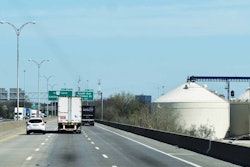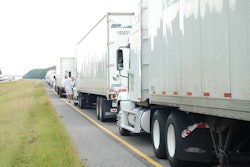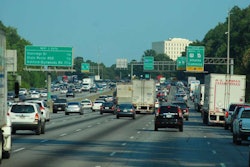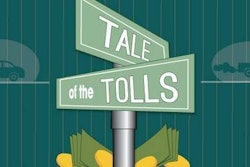Donald Trump, the “he-likes-to-build-things” president, hasn’t made any friends in trucking with his 10-year plan to build things.
The industry’s biggest disappointment with his infrastructure plan was the call for tolling interstates. Tolling’s overhead costs have been estimated as high as 33 percent of revenue, far more than it costs to change a fuel tax rate.
Tolling tends to force traffic to other roads, creating problems of congestion, safety and excessive wear. Partnering with private parties to build and operate toll roads raises questions of ethics and efficiency.
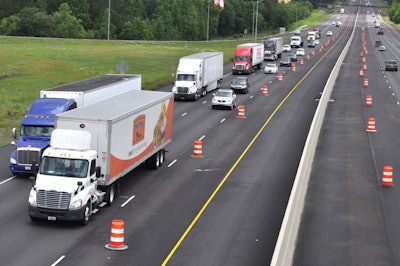 Trump’s infrastructure plan appears inadequate for catching up with needed investment. Long term, prospects for the gasoline- and diesel-funded Highway Trust Fund aren’t good, either.
Trump’s infrastructure plan appears inadequate for catching up with needed investment. Long term, prospects for the gasoline- and diesel-funded Highway Trust Fund aren’t good, either.Beyond tolling, the $1 trillion infrastructure plan that was a big part of Trump’s campaign morphed into – voila – a $1.5 trillion plan. Only it’s not $1.5 trillion Trump wants to be spend, but $200 billion. Of that, $100 billion supposedly would attract states, localities and the private sector to chip in. However, the match would be only 20 percent from the feds, inverting the traditional 80 percent contribution formula.
Many states for years have dug deep to pay for infrastructure expansion and repairs because lawmakers were too cowardly to fix the Highway Trust Fund’s outdated fuel-tax formula. So assuming states are ready to write checks for 80 percent of their infrastructure needs is naïve at best.

Even the $200 billion is misleading. The fiscal 2019 budget request proposes cuts as high as $275 billion in roads, bridges and broader areas of infrastructure, citylab.com reports. In this shell game, highway users lose.
Days after Trump’s infrastructure plan was released, he repeatedly proposed to a group of lawmakers the idea of raising gasoline and diesel taxes 25 cents per gallon. Is he serious? Maybe. He’d previously said he’d consider raising the federal gasoline tax, last increased in 1993. But if he is serious, why wasn’t this part of the infrastructure plan? Serious or not, Republicans, like most congressmen over the last two decades, appear unwilling to champion a consumer tax.
Fixing the trust fund, endorsed by many inside and outside of trucking, might be the best immediate solution to meeting infrastructure needs. In the not-too-distant future, though, the value of petroleum-based highway funding will shrink as electric engines displace internal combustion engines. Writing in Wired magazine, Nick Stockton suggests making like Oregon and switching to a vehicle miles traveled tax. With the right wireless technology placed in vehicles and roads (granted, a huge qualifier), a VMT tax could be a fair, efficient way to collect tolls on all roads without all the problems of traditional tolling systems.
That has its own hurdles to address, but it’s a conversation that needs to start. We can’t expect tomorrow’s dwindling fossil-fuel-powered vehicles to adequately fund already under-funded highways while the e-powered elite rides free.

